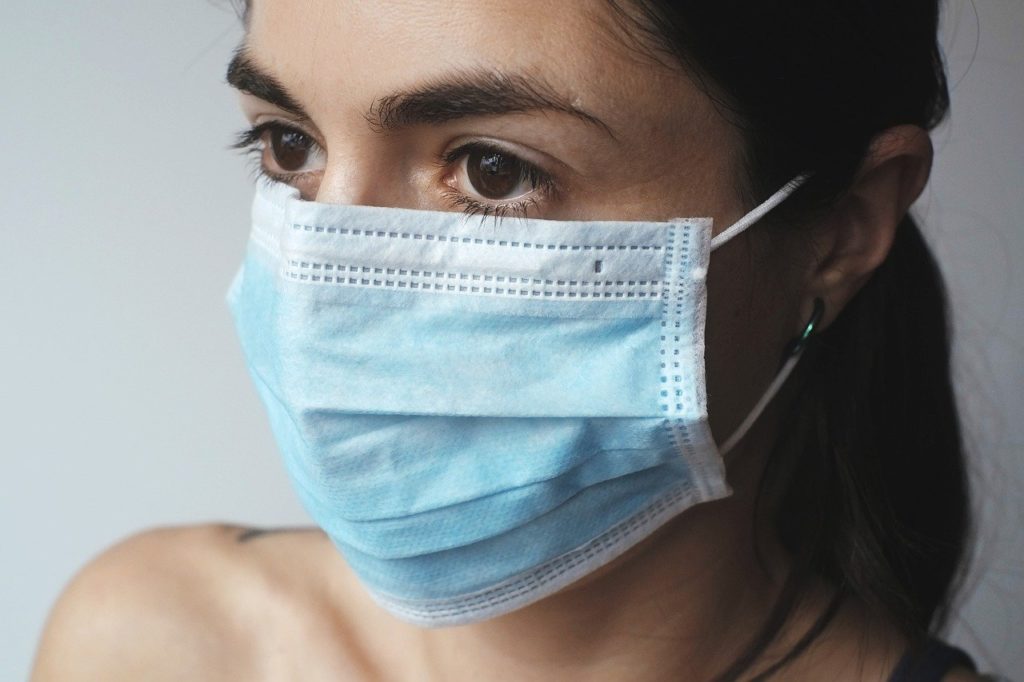Symptoms of COVID-19 are diverse. While some people experience no symptoms at all, others experience severe symptoms to the point that they require mechanical breathing help.
One of the most important factors that increases the chance of getting serious coronavirus symptoms is age. The disease has a larger chance of overshadowing older people, especially those with other ailments such as heart and lung disease and those with compromised immune systems. People suffering from other respiratory infections, such as influenza, are in the same boat.
People with several of these illnesses have a higher risk of developing the disease. These circumstances will be explored further down.
Growing Older
Covid-19 can infect people of any age, including children. Nonetheless, the majority of those affected are middle-aged and older adults. The elderly, especially those over the age of 85, are the most impacted and are at danger of acquiring severe symptoms.
Severe illness is more likely as people get older. In the United States, almost 80% of COVID-19 deaths occur in adults aged 65 and up. Older adults with underlying health issues had a greater rate of COVID-19 fatalities by age.
Because of one or more of the following factors, the risk of serious illness rises with age:
- Immune system compromise – As people age, their immune systems deteriorate, making it more difficult for their bodies to fight illnesses.
- Inflammation — Because the immune systems of elderly people are weak, they tend to overreact to infections, causing inflammation. A cytokine storm is a situation that occurs when inflammation spirals out of control.
- Complications–Older people are more likely to have several physical problems. A respiratory infection can swiftly exacerbate a heart, kidney, or liver disease that already exists.
- Reduced Lung Function — Lings lose elasticity as they age, making it difficult to maintain normal breathing when a pneumonia-like condition arises.
Chronic Obstructive Pulmonary Disease (COPD)
Because Covid-19 targets the lungs, the chances of a pre-existing lung problem worsening are significant. If an infected person has any of the following conditions, the risk is increased:
- COPD (Chronic Obstructive Pulmonary Disease) is a lung disease that affects people
- Lung Cancer is a type of cancer that affects the
- Other lung diseases that put you at risk for a serious illness include:
- Cystic Fibrosis is a disease that affects the lungs.
Fibrosis of the lungs
Asthma ranges from mild to severe.
Meds for these disorders can impair your immune system, but it’s best to stick with the maintenance medications to keep coronavirus symptoms at bay on a daily basis.
Heart Problems
The cardiovascular and respiratory systems are inextricably linked. Before reaching the lungs, blood must pass via the heart.
When you have a respiratory illness, you don’t get enough oxygen into your lungs. As a result, the heart must work harder to keep up with the reduced oxygenated blood and transport it to the critical tissues.
Patients with pre-existing cardiovascular infections are at an even increased risk of heart attack and hypertension when infected with the coronavirus. In the worst-case scenario, a stroke may occur.
Diabetes
Type I and type II diabetes can cause severe blood sugar spikes if they are not effectively controlled. According to many research, the body’s inability to control blood sugar levels is one of the primary reasons why some people get COVID-19 rapidly and have it worsen.
When the body has too much blood sugar, ketones, an acidic deposit, inhibit the generation of white blood cells, making the person more vulnerable to infection, a condition known as diabetic ketoacidosis. Even if ketoacidosis isn’t present, people with diabetes have a weakened immune system.
Diseases of the Kidneys and Liver
COVID-19 is diagnosed by determining whether the patient has an underlying chronic disease that could exacerbate the symptoms. Folks with chronic liver and renal illnesses appear to have more severe symptoms than healthy people. If you have a kidney infection, your immune system may be compromised.
It’s important to remember that drugs used to treat renal and liver problems can affect the liver.
Immune System Deficiency
Many confirmed instances were in individuals with weaker immune systems, according to data from COVID-19 tests in Houston. The immune system is in charge of combating pathogens and illnesses like the coronavirus.
Certain situations impair your immune system, exposing you to coronavirus’s fatal side effects. They are as follows:
- Transplantation of Organs
- Treatment for Cancer
- Other circumstances that raise the probability of coronavirus symptoms progressing day by day include:
- Transplantation of bone marrow
- HIV/AIDS
- Prednisone, for example, is a medicine that might damage your immune system over time.
If you’re experiencing emergency symptoms like shortness of breath or a significant fever that’s becoming worse by the hour, visit Sacred Heart Emergency Center. We perform COVID-19 testing and also provide Regeneron Antibody Infusion treatment in Houston, TX.

